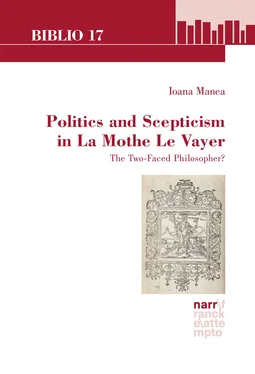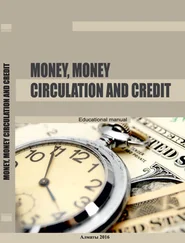In the view of the Greek atomists and of Lucretius, the relationship between the atoms and the body is similar to the one between the letters and the words.2 Governed by chance, the atoms form bodies which either function or are monstrous in the same way in which the letters form words that may be articulated or not. Although they manage to compose words and languages, the letters may not always succeed in forming a meaningful text. Comparable to languages, which result from the encounters of letters incapable of forming a text, the worlds composed of atoms are marred by failures. The latter invalidate the existence of an author who is supposed to be behind the universe formed by different worlds. By reacting against the atomists whom, however, they do not understand entirely, the Stoics refuse to acknowledge that the world stemming from the meetings of atoms governed by chance can be compared to a book. As it results, for instance, from Cicero’s De Natura deorum (II, xxxvii, 93-94), the followers of the Portico argue that the big book of the world implies the existence of an author.
The argument for the existence of an author of nature can be implicitly connected to the plea for the limits that should circumscribe human curiosity. In order to illustrate the necessity to impose restrictions on the knowledge that humankind is searching for, La Mothe Le Vayer uses, for instance, the metaphor of the world as a puppet show:
If this is as enough philosophers imagined it; and that Aristotle was right to compare in his book On the Universe (supposing it belongs to him) the first engine to a puppet player, who holds hidden the subtle and deceptive cords on which the movement of his small characters depends; isn’t it right to say that for him it is an offence to go further than he wants and to try, although uselessly, to discover the devices of this divine game, which exposes to our sight all the operations of Nature?
Si cela est ainsi, selon qu’assez de philosophes se le sont imaginé ; et qu’Aristote ait eu raison de comparer dans son livre Du Monde (présupposant qu’il soit de lui) le premier moteur à un joueur de marionnettes, qui tient cachées les cordes subtiles et artificieuses d’où dépend le mouvement de ses petits personnages ; Ne peut-on pas dire que c’est lui faire injure que de vouloir pénétrer plus avant qu’il ne désire, et de tâcher, quoiqu’inutilement, à découvrir les engins de ce jeu divin, qui expose à notre vue toutes les opérations de la nature ?3
In this respect, Gianni Paganini proves that La Mothe Le Vayer’s approach, which consists in relating the Aristotelian first engine with the pseudo-Aristotelian De mundo ad Alexandrum, does not lack soundness.4 More precisely, according to the treatise falsely attributed to Aristotle all throughout the Middle Ages, since it would be dishonourable for God to deal directly with human or terrestrial life, divine “power” (“puissance”) shows itself through “communication at a distance” (“communication à distance”). Nevertheless, according to Paganini, La Mothe Le Vayer is not entirely faithful to De Mundo when he applies the metaphor of the “puppet players” to humankind. The metaphor that is used in the pseudo-Aristotelian treatise for illustrating God’s action at a distance does not concern humankind in particular, but the world in general. Additionally, in order to compare humankind and the world with a puppet show, La Mothe Le Vayer also relies on Plato’s Laws .5 By taking up the point of the Greek philosopher, the author holds that, despite its status of “masterpiece” of the divine creation, humankind has “only been made by the hands of God only as if he were playing” (“[l’homme] n’a été fait des mains de Dieu que comme en jouant”) ,6 or “has only been produced by him [God] while frolicking ” (“n’a été fabriqué par lui [Dieu] qu’en s’ébattant”).7 Besides that, the world itself is a “work that God has made by playing” (“était un ouvrage, que Dieu avait fait en se jouant”).8 By means of these references, the author aims, on the one hand, to argue for the “playful status” (“statut ludique”)9 of philosophy, which would be in harmony with the entertainment to which the divinity devoted itself while creating the world. On the other hand, the references to Plato’s work are also likely to be used by the writer because they highlight the balance of power that governs the relationship between people as creatures and God as Creator.
On the whole, La Mothe Le Vayer compares the world with a puppet theatre in order to emphasise the illusion which is inherent in it and that humankind is condemned to be its victim. The trick responsible for the success of the show relies on the secret surrounding the strings that move the characters appearing on the stage. That is to say that the divinity does not use its power only in order to stage the magnificent show of the world, but also in order to carefully keep the secrets on which it establishes the performance. In so doing, the divinity is likely to adopt a similar attitude to that of any other puppet player who is, by definition, jealous of the secrets of the show that it stages in front of the public. It goes without saying that no director would like to see his show fail because of the unveiling of the strings he hides behind the curtain and uses in order to move his puppets: “It is certain that in the play wherein these small characters which we call puppets can be seen, the master who makes them move would feel offended if we lifted the cover whence come all their movements” (“Il est certain, qu’au jeu qui se voit de ces petites figures que nous appelons marionnettes, le maître, qui les fait remuer, s’offenserait, si on levait le tapis, qui couvre les ressorts d’où viennent tous leurs mouvements”).10
Furthermore, when he disapproves of human attempts to break through the illusions of the show staged by the divinity, La Mothe Le Vayer seems to be influenced by a conception of knowledge that has resulted from a mistake in the translation of an expression extracted from St. Paul’s First Epistle to the Romans, Noli altum sapere, sed time .11 Unlike the interpretation given to this phrase by the Middle Ages, Lorenzo Valla has shown that it did not refer to an intellectual, but to a moral vice. Persisting even after the discovery of the Italian humanist, the error in the understanding of the Apostle’s words caused them to be interpreted as a prohibition on the attempts to decipher the secrets of the divinity, of political power and of nature.
Likely to draw at least partly inspiration from this triple prohibition, La Mothe Le Vayer is worried about the results to which can lead the curiosity that seeks to unveil the secrets of theology, politics and physics. Concerning the former one, the attempt to go beyond the knowledge revealed by the divinity can provoke an outcome similar to that of Icarus who, counter to his rehabilitation carried out during the 17 thcentury, is seen as the symbol of the unavoidable failure to which the intellectual boldness is doomed.12 Besides that, in the field of politics, the triple interdiction derived from the first Pauline epistle to the Romans means that the secrets of power should be kept away from the intrusive looks since, through a comparison borrowed from the proverbs of Solomon, the princes’ hearts are as impenetrable as “the heights of the sky” (“la hauteur du Ciel”) and the “depths of the earth” (“la profondeur de la Terre”).13
Concerning physics, the obscurity of nature for the human mind makes La Mothe Le Vayer condemn the attempts which aim at shedding light on the causes and principles that flesh out the phenomena of the universe: “We do not make a negligible mistake when we want to submit it [nature] to the rules of mathematics, or to the subtle conclusions of logic, as has been uselessly attempted recently” (“nous ne commettons pas une petite faute quand nous la [Nature] voulons assujettir aux règles des mathématiques, ou aux fines conclusions de la logique, comme depuis peu l’on a tâché de faire inutilement”).14 The writer obviously refers to the path followed by his contemporaries, who were using “systematic and quantitative theoretical analysis and experimentation” in order to reveal what they considered to be the “mathematical and mechanical structure” of nature.15 For the pioneers of this way of investigating the universe like Galileo Galilei in Il Saggiatore , the “book of the world” was written in a “mathematical language”, with geometric characters. The curiosity for the “book of the world” advocated by La Mothe Le Vayer did not involve the examination of the model followed by the letters that constructed it. Our author rejects the mathematical explanations provided by the science of his time because, in his view, the diversity of the world is incommensurable with the uniformity of the mathematics invented by humankind:
Читать дальше












